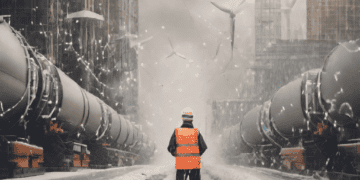Himanshu Gupta, with a firsthand understanding of the impact of climate change on agriculture, co-founded ClimateAi, a Bay Area-based startup. Growing up in India and working in public policy, Gupta witnessed the challenges posed by unpredictable monsoon seasons and their detrimental effects on crops and farmers’ livelihoods.
ClimateAi utilizes artificial intelligence (AI) to assist farms and businesses in preparing for a changing climate. By employing machine learning models, the company claims that its customers can proactively anticipate and manage climate-related risks to their supply chains and operations over varying timeframes, from weeks to entire seasons. Gupta highlights that this timeframe has traditionally been a blind spot for climate forecasters without access to AI-powered tools.
Predicting specific and localized extreme weather events, such as hurricanes and heat waves, weeks to seasons in advance, is a challenging task. However, having adequate time to prepare for such events can be crucial in mitigating potential catastrophes.
Gupta emphasizes that informing a company’s supply chain manager about an approaching heat wave just a week in advance may not provide sufficient time to take preventive measures. However, if the manager is alerted to a higher risk of a heat wave in the upcoming season, with potential impacts on cotton yield in a specific area, it becomes more actionable.
ClimateAi’s approach involves deep learning models that incorporate oceanic parameters, such as sea surface temperature and oceanic salinity, to enhance climate risk predictions, even in regions with limited weather data. Gupta explains that oceans serve as the long-term memory of Earth’s climate, influencing medium- to long-term weather patterns, and their data can be leveraged through machine learning approaches.
The company combines its deep learning models with government-run forecast models and numerical models from organizations like the US National Oceanic and Atmospheric Administration and the Intergovernmental Panel on Climate Change. This integration aims to achieve higher accuracy and forecasting reliability.
ClimateAi distinguishes itself with its “impact modeling” approach, creating climate-focused and business-focused models that can communicate with each other. The climate-focused model incorporates inputs from satellites, radar stations, and both public and private weather station data, while the business-focused model includes historical customer data, such as crop yields. This integration provides a clearer understanding of the potential impact of climate risks on specific business operations.
With approximately 40 global customers primarily in the food and agriculture industries, ClimateAi aims to expand into sectors like manufacturing and energy. Existing customers, such as Driscoll’s Inc., a leading fruit and produce supplier, have reported benefits from using ClimateAi’s technology. Driscoll’s uses the tools to forecast the impact of climate risks on its berry production, particularly in California, a region prone to extreme heat, drought, and wildfires.
Despite the promising outcomes, AI models face challenges in predicting future local climate shifts. Data scarcity in some parts of the world poses difficulties, as models trained on predominantly US data may result in less accuracy when applied to companies operating in regions with different climates.
Gupta acknowledges this challenge and cites the loss of a Brazilian customer due to the inability to apply ClimateAi’s predictive modeling on their farm, attributed to Brazil’s low density of weather stations. While recognizing the probabilistic nature of predictive modeling, ClimateAi believes it offers a more reliable alternative than relying on historical averages in a climate-change impacted future.
Stay current with supply chain report news at The Supply Chain Report. For international trade resources, visit ADAMftd.com.
#ClimateAi #AIinAgriculture #ClimateRiskManagement #ClimateChangeInnovation #SustainableFarming #PredictiveModeling #AIforAgriculture #ClimateTech #SupplyChainResilience #AgricultureTechnology #MachineLearning #ClimateForecasting #DeepLearning #AgricultureSupplyChain #ClimateImpact #FoodSecurity #TechForGood #AgTech #OceanicData #ClimateAdaptation #SustainableSupplyChains #BusinessContinuity















